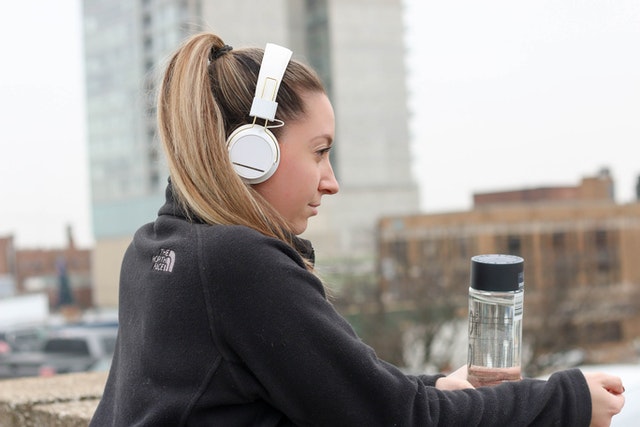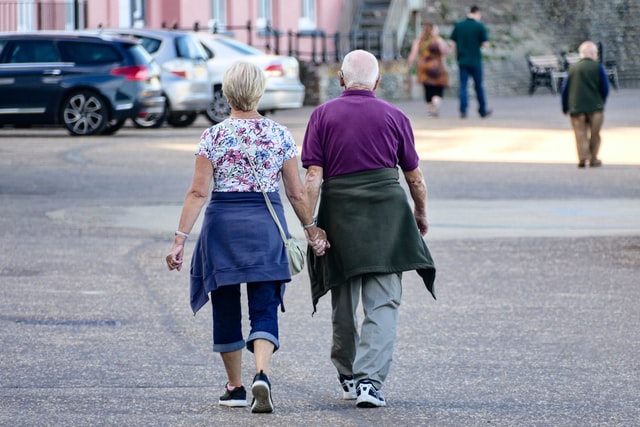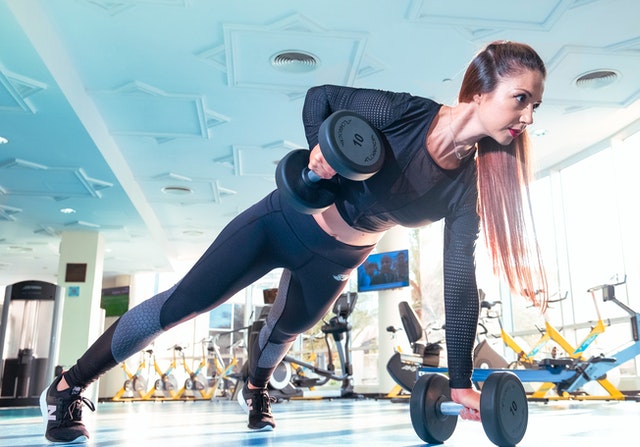Everyone out there either recommends that exercise is good for your health or has heard that from someone. What we generally hear is, “exercise to lose weight,” or “exercise to gain mass,” or “don’t stay in bed, do some physical activity,” and so on. But the benefits of exercise are not simply about aerobic ability and muscular mass.
Table of Contents
Why Do People Exercise Regularly?

Exercise may improve your physical health and physique, aid in weight loss, increase your sexual life, and even add years to your life. However, most people are not motivated to stay active due to this.
Regular exercisers do so because it helps them feel alive. They are more active throughout the day, sleep better at night, and have a better memory. Plus are more optimistic about themselves and their lives. Additionally, exercise has several benefits for many mental health problems.
What exactly are we waiting for? Let’s get into the specifics of the importance of physical activity to gain a thorough grasp of the matter.
15 Benefits of Exercise on Physical & Mental Health
Any action that causes your muscles to work and compels your body to create energy is called “exercise.” Running, swimming, walking, and dancing are just a few examples of physical activity. Active lifestyles have been shown to bring several mental and physical health advantages. It may even help you live longer.
The top 15 benefits of exercise on physical and mental health in this article are exercise keeps you more energized, minimizes the risk of chronic diseases, and improves skin health. It aids in weight loss, strengthens muscles and bones, and gives you confidence. It also improves memory and brain health, relaxes and aids in better sleep, and reduces depression. Furthermore, it relieves pain, cures ADHD, treats PTSD and trauma, improves sex life, allows you to live longer, and makes you happier.
#1 Keeps You More Energized

Exercise may help many people feel more energized, particularly those with medical difficulties. In fact, exercise has also been shown to increase energy levels in those with diseases like cancer. A recent study found that 6 weeks of frequent training reduced exhaustion feelings in 36 people with chronic fatigue.
Exercise seems to be more effective than passive therapies like relaxation and stretching or no treatment, treating chronic fatigue syndrome (CFS). Not to forget, there are the cardiac and lung benefits of exercise as well. Aerobic exercise enhances cardiovascular and pulmonary function, helping you feel more energized.
Regular exercise improves the efficiency of your heart’s oxygen delivery to your muscles. As a result, you’re less likely to become out of breath during heavy activities because of this aerobic workout.
#2 Minimizes Risk of Chronic Diseases

Chronic diseases worsen by inactivity. Exercise improves insulin sensitivity, heart health, and body composition. It also lowers blood pressure and cholesterol. Exercise may help reduce or avoid the chronic health conditions mentioned below:
- Diabetes type 2 (Maintaining a healthy weight is vital for preventing Type 2. It also benefits patients with type 1 diabetes. Resistance training improves glycemic control and fat mass in people with type 2 diabetes.)
- Heart diseases (Exercise decreases cardiovascular risk factors and may help treat heart disease patients.)
- Several forms of cancer (Oncologists recommend regular exercise for breast, colorectal, endometrial, gallbladder, kidney, lung, liver, ovarian, pancreatic, prostate, thyroid, gastric, and esophageal cancers.)
- High Cholesterol (Moderate exercise may enhance HDL (good) cholesterol while reducing or balancing LDL (bad). High-intensity aerobic exercise is needed to lower LDL levels, according to research.)
- Hypertension or High Blood Pressure (Regular aerobic exercise may assist hypertensive persons in reducing their resting systolic blood pressure by 5–7 mmHg.)
The absence of regular exercise may cause significant increases in belly fat, increasing the risk of type 2 diabetes and heart disease. As a result, frequent exercise is suggested to decrease belly fat and the risk of chronic illnesses.
#3 Improves Skin Health

Oxidative stress in your body may harm your skin. Oxidative stress occurs when the body’s antioxidant defenses fail to repair free radical-induced cell damage. This may cause damage to the cell structure, affecting the skin.
While excessive and vigorous exercise may cause oxidative damage, frequent moderate exercise might boost the body’s natural antioxidant production. On the other hand, exercise may increase blood flow and encourage skin cell modifications, hence delaying skin aging.
#4 Aids in Losing Weight

According to various studies, inactivity is crucial to weight gain and obesity. To understand how exercise influences weight loss, it is necessary first to comprehend the link between activity and energy expenditure.
Your body utilizes energy in three ways:
- Food digestion
- Exercising
- Maintaining vital physiological processes (such as pulse and breathing)
Lowering your calorie intake while dieting lowers your metabolic rate, potentially postponing weight reduction. On the other hand, regular exercise has been demonstrated to raise your metabolic rate, which may help you lose weight by burning more calories. In addition, studies have shown that combining aerobic exercise with strength training may aid in fat loss and muscle mass maintenance, both of which are vital for losing weight and preserving muscle mass.
#5 Strengthens Muscles and Bones

Exercise is crucial for healthy muscular and bone development. Weightlifting and enough protein intake may increase muscle development. How exactly can exercise assist grow muscle and bone mass? Exercise increases the ability of your muscles to absorb amino acids. This encourages growth and prevents collapse.
Aging reduces muscle mass and function, increasing the risk of injury. Regular exercise is required to maintain strength and prevent muscle loss. Exercise may also help prevent osteoporosis by increasing bone density early in life. Sports like soccer and basketball and high-impact activities like gymnastics may help build greater bone density than low-impact exercises like swimming and cycling.
#6 Gives You Confidence

When you have a healthy sense of self-esteem, you feel good about yourself and believe that you are worthy of the respect of others. Exercise regularly is an investment in your mind, body, and spirit. If you make it a habit, it can boost your self-esteem and make you feel strong. Even small workout goals will make you feel better about yourself and give you a sense of accomplishment.
#7 Improves Memory and Brain Health

Exercise may help maintain memory and cognitive abilities while improving brain function. It raises your heart rate, allowing more blood and oxygen to your brain. It may also boost hormones that promote brain cell growth. Also, because the chronic condition may affect your brain’s function, preventing it via exercise may benefit your brain.
Physical activity is vital for the elderly because aging, oxidative stress, and inflammation alter brain structure and function. Exercise has been shown to enhance the size of the hippocampus, a brain region important for memory and learning. Finally, exercise has been proven to slow down brain alterations linked to illnesses like Alzheimer’s and dementia.
#8 Relaxes and Aids in Better Sleep

Regular exercise might help you relax and sleep better. Exercise causes energy loss, which activates healing mechanisms during sleep, improving sleep quality. The elevation in body temperature during exercise may also enhance sleep quality by enabling the body temperature to fall during sleep.
The research found that exercising enhanced sleep quality and lowered sleep latency (the time it takes to fall asleep). Researchers found that stretching and resistance training helped those with persistent insomnia sleep better. Regular exercise also helps the elderly, who are more prone to sleep issues.
#9 Reduces Depression

Studies have shown that exercise is equally effective as antidepressants in treating mild to severe depression without the side effects. Running for 15 minutes or walking for an hour every day lowered the risk of major depression by 26%, according to a new study from Harvard T.H. Exercise may help you prevent relapsing as well as alleviate depressive symptoms.
Exercise is a powerful antidepressant for several reasons. Most importantly, it promotes neuronal growth, reduced inflammation, and new activity patterns that promote feelings of calm and well-being. It also stimulates your brain to release endorphins, powerful substances that make you joyful. Exercising may also act as a distraction, allowing you to find some peace to break the grief cycle.
#10 Let’s Your Pain Go

Even though chronic pain is severe, exercise can help relieve it. Rest and inactivity were the standard treatments for chronic pain for many years. On the other hand, recent research has shown that exercise can help with chronic pain relief. Numerous studies show that exercise can help people with chronic pain reduce discomfort and improve their quality of life.
Exercise has also been shown in numerous trials to aid in the management of pain associated with a variety of health disorders, including chronic low back pain, fibromyalgia, and chronic soft tissue shoulder dysfunction, to name a few. Furthermore, physical activity may also help to improve pain tolerance and perception.
#11 Cures ADHD

Regular exercise is one of the simplest and most effective treatments for reducing ADHD symptoms. It improves concentration, motivation, memory, and mood. Physical activity increases dopamine, norepinephrine, and serotonin levels in the brain, influencing focus and attention. This way, exercise works similarly to ADHD medications such as Ritalin and Adderall.
#12 Treats PTSD and Trauma

Evidence suggests that focusing on your body and how it feels when exercising might help your nervous system. It becomes “unstuck” and moves out of the immobility stress response that characterizes PTSD (Post-Traumatic Stress Disorder) or trauma.
Instead of letting your thoughts wander, concentrate on the physical sensations in your joints and muscles, and internal organs while you move your body. Walking (especially in sand), running, swimming, weight training, or dancing are among the greatest possibilities for cross-movement workouts that engage both arms and legs.
Hiking, sailing, mountain biking, rock climbing, whitewater rafting, and downhill and cross-country skiing (both downhill and cross-country) have all been shown to aid in the treatment of PTSD symptoms.
#13 Improves Sex Life

Physical activity has been proven to boost sexual desire. Regular exercise may enhance your sex life by strengthening your heart, enhancing blood circulation, toning your muscles, and increasing flexibility. It improves sexual performance and satisfaction while also increasing sexual activity frequency.
According to one study, regular exercise improved sexual function and desire in 405 postmenopausal women. An analysis of ten studies found that exercising for at least 160 minutes per week for at least six months might significantly improve men’s erectile function.
Another study found that a 6-minute walk improved the symptoms of erectile dysfunction in 41 men by 71%. Another study discovered that 16 weeks of consistent resistance training increased sex drive in women with polycystic ovarian syndrome, which may reduce sex desire.
#14 Allows You to Live Longer

Healthcare practitioners suggest regular exercise to cure or prevent diseases such as diabetes, heart disease, some forms of cancer, and obesity. It also protects your mental health, as mentioned above. Furthermore, exercise strengthens your bones, muscles, and joints while reducing your cholesterol and blood pressure. These fantastic benefits might lead to one thing: living a longer life.
#15 Makes You Happier

One of the most important benefits of exercise is it makes you happy. What else could a person wish? We all seek happiness! A good workout may help you feel better and decrease stress. It alters stress and anxiety-controlling brain regions. It may also help cure depression by increasing brain sensitivity to serotonin and norepinephrine.
Exercise may also boost endorphin synthesis, which has been shown to boost mood and reduce pain. Workout appears to lift your spirits no matter how strenuous it is. In a study of 24 depressed women, the exercise of any intensity lessened sadness. A meta-analysis of 19 studies found that active persons who stop exercising face increased depression and anxiety symptoms.
The Bottom Line
Exercise offers several health benefits that may be applied to almost every aspect of your life. Regular physical activity may help you feel happier and sleep better by boosting the production of feel-good chemicals. Additionally, it may enhance skin health, aid in weight loss, or let you have a better sex life.
It is difficult for everyone to develop and sustain a new habit, such as beginning to exercise. However, it only takes a tiny bit of work to make a significant difference in your health with the correct information.
You’ll fulfill the Department of Health and Human Services’ adult activity guidelines. If you aim for 150-300 minutes of moderate-intensity aerobic activity each week (such as walking, cycling, or swimming). Alternatively, 75 minutes of intense physical exercise (such as running or engaging in a rigorous fitness class) spaced out across the week.
Whether you participate in a particular sport or adhere to the 150-minutes-per-week-activity-guideline, you will undoubtedly get the benefits of exercise on your physical and mental health.
